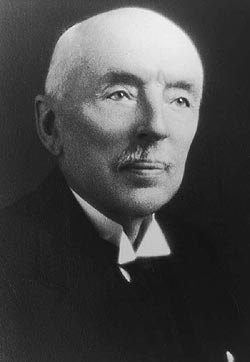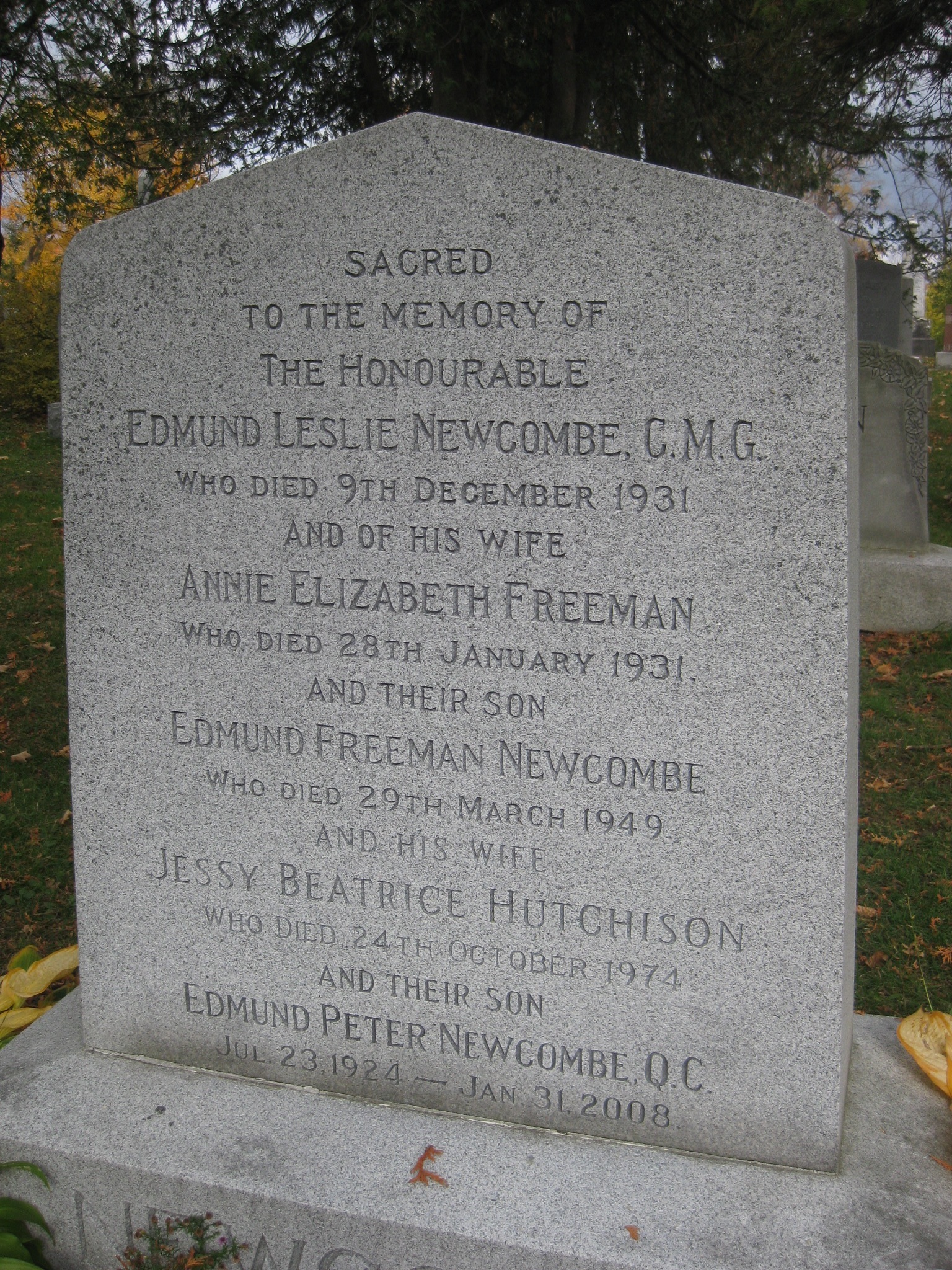
The Honourable Edmund Leslie Newcombe: A Distinguished Career in Canadian Justice
Section 50, Lot 126 S
Early Life and Education Born in Cornwallis, Nova Scotia, in 1859, Edmund Leslie Newcombe exhibited academic excellence from a young age. He pursued higher education at Dalhousie University, where he earned a Bachelor of Arts (B.A.), a Master of Arts (M.A.), a Bachelor of Laws (L.L.B.), and later an honorary Doctor of Laws (LL.D.).
Legal Career Called to the bar in 1883, Newcombe quickly established himself as a formidable lawyer. His legal acumen and dedication to public service led to his appointment as Deputy Minister of Justice for Canada in 1893, a position he held with distinction for over 30 years. In this role, Newcombe was instrumental in shaping numerous legal policies and reforms that had a lasting impact on the Canadian legal system.
Supreme Court of Canada In 1924, Edmund Leslie Newcombe was appointed as a judge of the Supreme Court of Canada. His tenure on the bench was marked by his deep understanding of the law and his commitment to justice. He served on the Supreme Court until his death, contributing significantly to the development of Canadian jurisprudence.
Contributions and Legacy Throughout his career, Newcombe was known for his unwavering commitment to the principles of justice and fairness. As Deputy Minister of Justice, he played a crucial role in drafting and revising key pieces of legislation that shaped the legal framework of Canada.
On the Supreme Court, Newcombe was involved in several landmark cases that helped define Canadian constitutional law. One notable case was Toronto Electric Commissioners v. Snider (1925), where the court ruled on the division of powers between federal and provincial governments, setting important precedents for the interpretation of the British North America Act. His judgments often emphasized the importance of federalism and the balance of powers, contributing to the legal discourse on the distribution of legislative authority in Canada.
Another significant case was Reference re Weekly Rest in Industrial Undertakings Act (1936), where Newcombe's legal reasoning helped clarify the scope of federal power over labor laws, impacting the development of labor rights in Canada.
His decisions and legal opinions have had a lasting influence on Canadian law, particularly in the areas of constitutional and administrative law. Newcombe's commitment to justice was also evident in his efforts to ensure that the legal system was fair and accessible to all Canadians, regardless of their background.
Later Years and Death Edmund Leslie Newcombe passed away in Ottawa on December 9, 1931. His legacy endures through the numerous legal precedents he established and the profound impact he had on the Canadian judicial system.

Sir Edmund Leslie Newcombe remains a respected figure in Canadian legal history, remembered for his contributions to justice and his dedication to public service.

